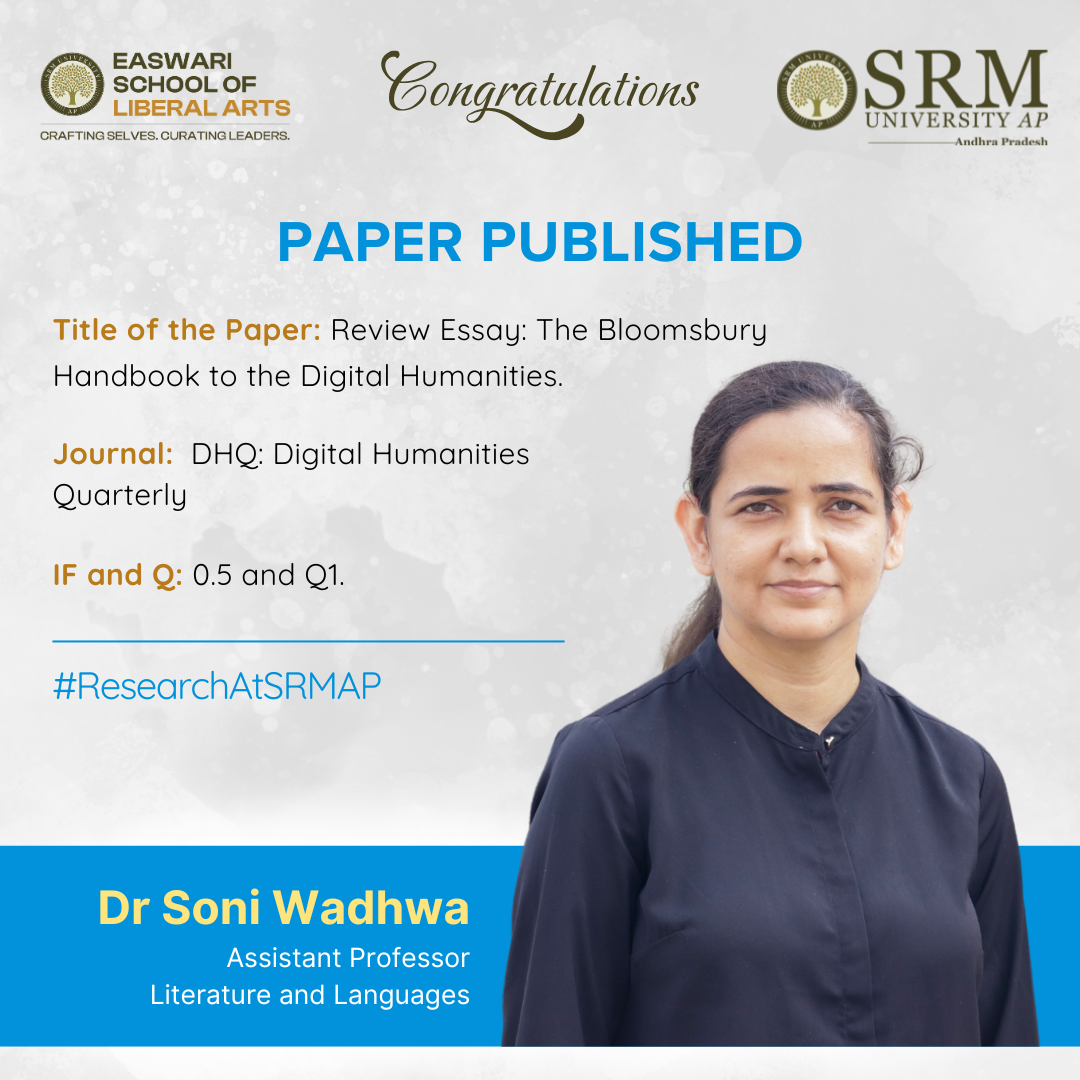 A handbook is a complex and demanding genre, it must offer a comprehensive overview of a field, articulating its foundational principles, charting ongoing debates, and identifying potential future directions. Such volumes are often judged as much by what they exclude as by what they include. Within this context Dr Soni Wadhwa, Assistant Professor in the Department of Literature and Languages, approached “The Bloomsbury Handbook to the Digital Humanities” in her review essay published in the Q1 journal “DHQ: Digital Humanities Quarterly”.
A handbook is a complex and demanding genre, it must offer a comprehensive overview of a field, articulating its foundational principles, charting ongoing debates, and identifying potential future directions. Such volumes are often judged as much by what they exclude as by what they include. Within this context Dr Soni Wadhwa, Assistant Professor in the Department of Literature and Languages, approached “The Bloomsbury Handbook to the Digital Humanities” in her review essay published in the Q1 journal “DHQ: Digital Humanities Quarterly”.
Abstract
The Bloomsbury Handbook, edited by James O’Sullivan is framed as a forward-looking resource aimed at fostering further developments in the field of digital humanities (DH). In his introduction, O’Sullivan notes that the volume is designed to serve three categories of readers: DH experts, the DH-curious, and skeptics. The collection is divided into five thematic sections: “Perspectives & Polemics,” “Methods, Tools, & Techniques,” “Public Digital Humanities,” “Institutional Contexts,” and “DH Futures.” Each section features chapters that provide overviews of key subfields while engaging with specific methodological and theoretical issues.
In her review, Dr Wadhwa refrains from summarising all 43 chapters. Instead, she evaluates what the handbook offers to the different categories of readers it aims to serve. She highlights the volume’s self-critical tone and its ability to generate meaningful dialogue about the contributions and challenges of digital humanities in analysing culture and text.
Dr Wadhwa also addresses the misconceptions and hesitations that often surround digital humanities, particularly among scholars from humanities and social sciences who may feel excluded due to a lack of technical expertise. Her review seeks to demystify the field by showcasing exemplary work from leading scholars, thereby offering guidance to researchers interested in exploring DH.
Practical Implementations and Future Research plans:
She hopes that her essay will encourage aspiring researchers to delve deeper into the various subdomains of digital humanities and engage with the field with greater confidence. Dr Wadhwa emphasises the need for more accessible resources and institutional support for digital humanities, asserting its growing relevance within academia.
Looking ahead, she intends to build further on her work in the area of digital archiving which is a vital subdomain within digital humanities. She plans to write more extensively about the projects she has undertaken, contributing to the evolving discourse and practice of the field.

